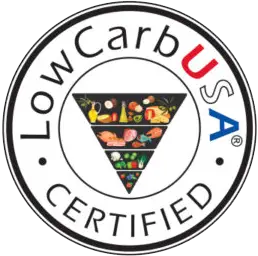We first met Dr. Lewis Cantley when he was a speaker at our event San Francisco back in 2018 and his talk on the research he was doing made me sit bolt upright and pay attention. Dr. Cantley has made significant advances in cancer research stemming from his discovery of the signalling pathway phosphoinositide 3-kinase (Pi3K) in 1984. It is an enzyme that mediates pretty much everything that insulin does, in the liver, in the fat cells, and it mediates the lowering of serum glucose levels because it drives glucose into the muscle, AND into tumours. Since tumours thrive on glucose, they thought to develop a Pi3 Kinase inhibitor in order to try to treat tumours but the inhibitor resulted in startling rises in blood glucose levels.
In order to manage this they tried using many different drugs, including the use of Metformin with very limited success. Most people had to drop out of the treatments as their glucose levels rose dangerously high. Also, for those who could stay on the treatment only got, on average a life extension of just short of one year. His team then tried advocating a very strict ketogenic diet for a small control group and had great success for those who did stay in the diet (which was most of them). Together with the results they have on combining the ketogenic diet with a Pi3K inhibitor in rat models which, in his words, produced miraculous results they now have formal human clinical trials underway which I am confident will produce miraculous results as well.
Lewis Cantley, PhD is the author of more than 400 original papers, 50 book chapters and review articles, Dr. Cantley is a fellow of the American Academy of Arts and Sciences and a member of the National Academy of Science, the Institute of Medicine of the National Academies, and the European life sciences academy EMBO. He graduated summa cum laude with a B.S. in chemistry from West Virginia Wesleyan College (1971) and obtained a Ph.D. in biophysical chemistry from Cornell University (1975). He conducted postdoctoral research at Harvard University, where he was appointed assistant professor of biochemistry and molecular biology in 1978.
He became a professor of physiology at Tufts University in 1985, but returned to Harvard Medical School as professor of cell biology in 1992. He became chief of Harvard’s new Division of Signal Transduction, and a founding member of its Department of Systems Biology in 2002. In 2007, he was appointed director of the Beth Israel Deaconess Cancer Center. He joined Weill Cornell Medicine as the Meyer Director of the Sandra and Edward Meyer Cancer Center in 2012.
Among his accolades are the ASBMB Avanti Award for Lipid Research (1998); the Heinrich Wieland Preis for Lipid Research (2000); the Caledonian Prize from the Royal Society of Edinburgh (2002); the Pezcoller Foundation–AACR International Award for Cancer Research (2005); the Rolf Luft Award for Diabetes and Endocrinology Research from the Karolinska Institute, Stockholm (2009); the Pasarow Prize for Cancer Research (2011); the Breakthrough in Life Sciences Prize (2013); the Jacobaeus Prize for Diabetes Research from the Karolinska Institute (2013); the AACR Princess Takamatsu Memorial Lectureship (2015); the Ross Prize in Molecular Medicine (2015); the Canada Gairdner International Award (2015); the AACI Distinguished Scientist Award (2015); the Hope Funds Award of Excellence in Basic Science (2016); the Wolf Prize (2016); and the NCI Outstanding Investigator Award (2016).
|
We have now introduced tiers for Loyal Patrons to get early access to podcast episodes as well as really cool bonus material. The work we do to put on these educational events, build the community and develop and maintain the Clinical Guidelines we have published is not sustainable without your support. Please consider being a part of the solution and contributing to changing the world with us by becoming a Patron. Even the smallest contribution helps! |


